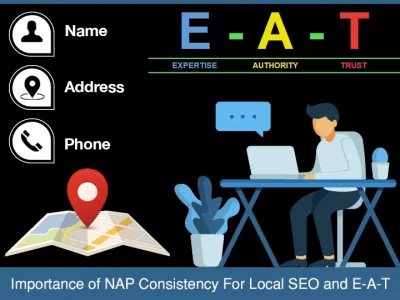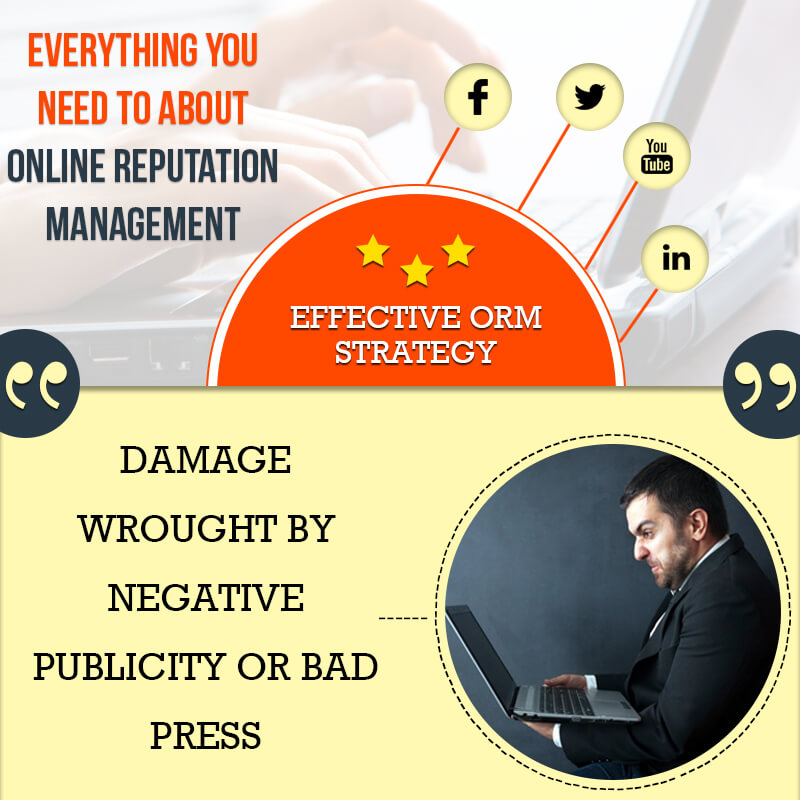 Brand consistency is an important thing when it comes to marketing. Your logo, slogan, and colors help your customers to recognize and trust your brand. For online businesses, focusing on NAP consistency is an important element for both E-A-T and Local SEO. NAP stands for Name, Address, and Phone Number, and E-A-T stands for expertise, authority, and trustworthiness.
Brand consistency is an important thing when it comes to marketing. Your logo, slogan, and colors help your customers to recognize and trust your brand. For online businesses, focusing on NAP consistency is an important element for both E-A-T and Local SEO. NAP stands for Name, Address, and Phone Number, and E-A-T stands for expertise, authority, and trustworthiness.
Defining SEO, NAP, and E-A-T
Most of us are familiar with the acronym SEO which stands for Search Engine Optimization. It is a practice for optimizing a website in a manner that appears on search engine result pages for relevant search terms. For instance, if you are a dentist in Jacksonville, you would always want to appear among the top results for search terms like “Dentists in Jacksonville”. Small business SEO requires you to optimize your website by integrating the most searched keywords so that you start ranking organically.
E-A-T as mentioned above stands for expertise, authority, trustworthiness. Every business wants to be an expert and a trusted authority in its industry. Besides your customers, it is important to increase trustworthiness with Google and other search engines too.
Importance of NAP consistency for Small Business SEO
Online business listings are an integral part of any business’s digital marketing strategy. These listings act as backlinks and help in build the ng authority of your website. Essentially a link from another website pointing to your website endorses your website which is picked by search engines. However, all such endorsements must provide the same information about your business.
The three big listings on the internet today are Google My Business, Yelp, and Bing Places. Each listing needs to be identical to each other and match every other listing or social media profile you have created. It is important that they also align with NAP information published on your website.
Consistency is important as consumers looking to connect with a local business look for relevant and reliable information. Having inconsistent NAP across the internet affects your trustworthiness making it difficult for your business to appear in search results for local queries.
Importance of NAP for My Business’s E-A-T
NAP inconsistencies adversely impact your local SEO as search engines aren’t confident about the information you are sharing. Your business website can affect a person’s health, professional decisions, or financial health. Google in particular holds websites to the highest standard. Accurate NAP information is a part of this standard.
E-A-T is important as inconsistent NAP information adversely impacts your potential clients or customers. As a customer, if one calls a business and learns that it’s a wrong number or out-of-order, the impression of the business takes a hit. Similarly, if a customer searches for your business online to visit your office and learns that the address was wrong, it creates a negative experience regarding the business.
How to Ensure NAP Consistency for Your Business?
Summarizing the discussion above, we learn that consistency is important. You might not use the same business name as per your business license, but whatever you choose, it has to be the same everywhere.
Some questions you should answer to ensure you are being consistent are:
- Do you have a limited liability company? Would you like to include “LLC” in your business name?
- Does your business name contain “and” or an ampersand? Which one will you prefer to use? Never use them interchangeably.
- Do you have commas in your business name? Stay consistent by keeping them in or leaving them out.
Additionally, consider the manner you wish to list the business address. If it includes a suite number, ensure you spell out the abbreviations and include the specific suite number. Search engines intend to offer their users the most relevant and valuable information. Giving them consistent NAP information everywhere ensures they reward you. Most importantly, your potential customers have a positive first experience with your business.
In case you think you need professional help to take care of NAP, E-A-T, and Local SEO of your business in Jacksonville, FL, contact Local SEO Jacksonville Company. They are an experienced team of professionals who have been serving both big and small customers.









